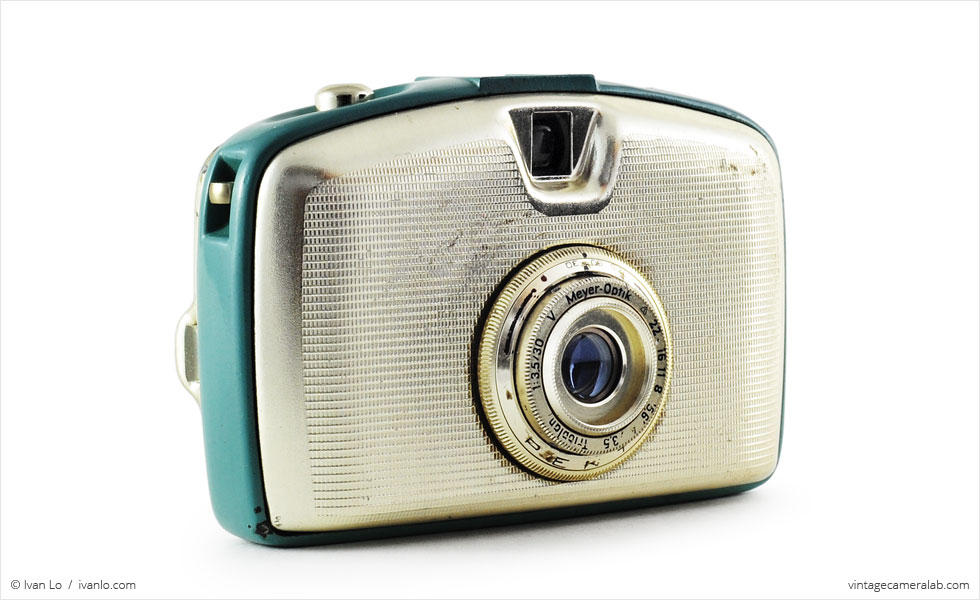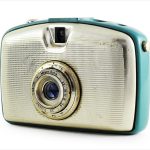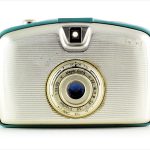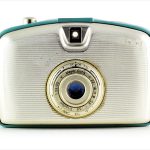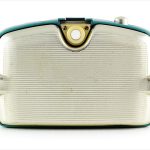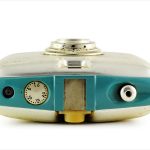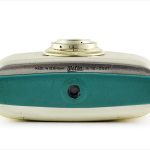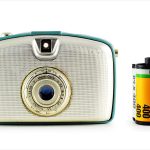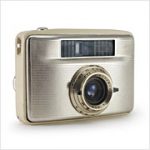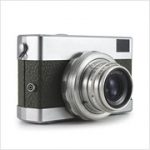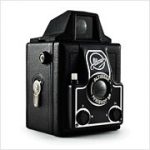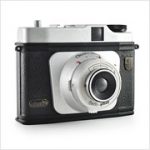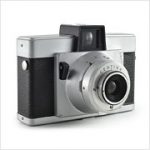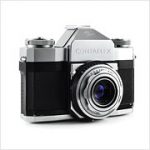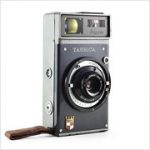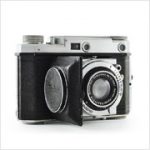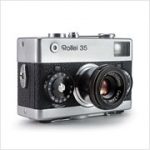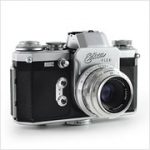Welta Penti Specifications
| Manufacturer: | VEB Welta Kamera-Werke |
| and later VEB Pentacon | |
| Origin: | East Germany |
| (modern day Germany) | |
| Made in: | Freital and later Dresden, |
| East Germany | |
| (modern day Germany) | |
| Introduced: | 1959 |
| Type: | Subminiature, Viewfinder |
| Format: | 35mm Film (half-frame) |
| Dimensions: | 10.7 x 7 x 4.5 cm |
Welta Penti Overview
The Welta Penti is a stylish compact 35mm half-frame camera introduced by VEB Welta Kamera-Werke in the Dresden suburb of Freital, East Germany for use with Agfa‘s Karat film cartridge. Sometimes referred to as the Penti 0, this particular camera is the first of several Penti models made by Welta and—after Welta merged with other manufacturers like Zeiss Ikon and Altissa to form it—Pentacon. Like the vast majority of camera manufacturers based in Dresden, Welta became a state-run company after World War II as Germany split apart.
The Penti boasts a Meyer-Optik 30mm f/3.5 Trioplan lens which has an inner ring for adjusting focus and a second, larger ring to change the aperture. The outermost ring on the lens barrel selects one of four shutter speeds (Bulb, 1/30, 1/60, and 1/125 seconds) which are triggered via the chrome shutter button with threaded cable release socket on the top of the camera. Once the shutter is fired, a rod on the user’s left hand side of the camera pops out, protruding by about two centimeters. Pushing the rod back into the camera cocks the shutter and advances the film at the same time. Also located on the top plate of the camera are a cold shoe in the center, a circular frame counter, and a flash sync socket.
I had been wanting to buy this beautiful camera for my wife and, after a year or so of watching eBay auctions, finally got a great deal on one. The Penti matches its gold-anodized aluminum body with three colors: cream, maroon, and this shade of aqua green. Personally, I’m quite taken with this camera. Not only is it gorgeous to look at but the film advance system is an absolute pleasure to use. The only drawback to this is its use of Agfa Rapid cartridges which are fiddly and need to be manually respooled with 35mm film.
Find your very own Welta Penti on eBay.
McKeown, James M. and Joan C. McKeown’s Price Guide to Antique and Classic Cameras, 2001-2002. (Grantsburg, WI, USA: Centennial Photo Service, 2001), p 532
“Penti,” Camera Wiki, http://camera-wiki.org/wiki/Penti

